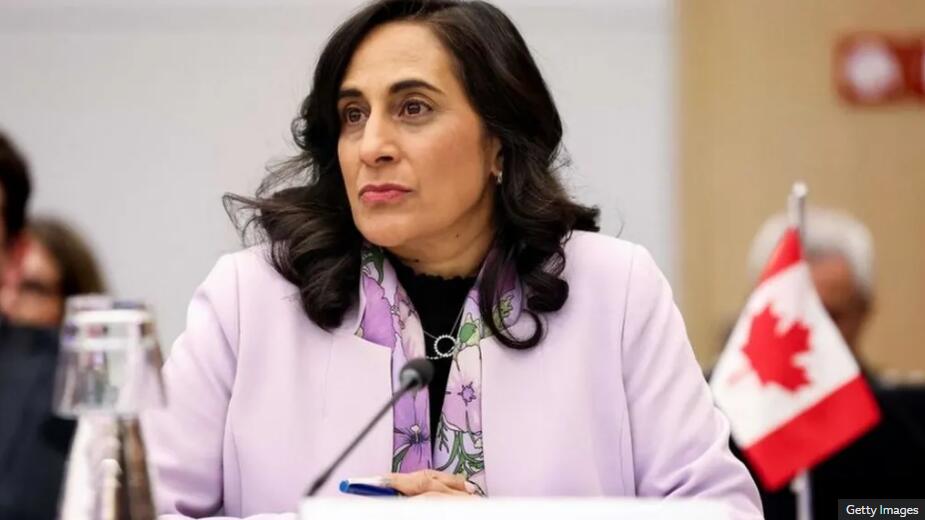Canada finds C$5m in fraudulent billing by government suppliers
The Canadian government says an internal review has found it has been fraudulently billed C$5m ($3.7m; £2.9m) by private contractors.
The revelation comes after controversy erupted around a federal Covid-19 mobile application called ArriveCan.
Questions were raised on the international travel and vaccine passport app after it was revealed that it cost nearly C$60m to create.
Officials said the C$5m in fraudulent fees are unrelated to the app.
Government officials said Wednesday’s announcement is “the first wave of fraudulent billing cases”, with more expected to be announced in the coming months.
The review found that subcontractors, or individuals, who worked on federal contracts had submitted fraudulent timesheets and billed multiple departments.
In particular, three IT subcontractors were found to have fraudulently billed on contract work with 36 separate government departments and Crown corporations between 2018 and 2022.
Anita Anand, Canada’s president of the Treasury Board, called the revelation “very concerning” and “unacceptable” at a news conference on Wednesday.
The fraud cases have been referred to police and have prompted the government to launch a new supplier compliance office, as well as tighten conflict of interest rules for public servants.
The government said it is also working to recover the C$5m it lost.
Names of the subcontractors suspected of fraud will not be released, the government said, citing the ongoing investigation.
Officials said the discovery was made as part of “ongoing efforts” to detect fraud and other wrongdoing within Canada’s procurement and public services department.
They added that recent reports by a federal auditor and parliamentary studies “have revealed a need for action on many fronts to improve the management and integrity of Canada’s procurement processes”.
The announcement came as members of parliament separately grilled vendors who worked on the ArriveCan app – a mobile tool launched by the Canada Border Services Agency during the Covid-19 pandemic.
The application allows travellers to electronically upload their proof of vaccination, as well as submit travel documents and customs declarations. Its use was mandatory for international travel while pandemic measures were in place.
A report released by a federal auditor in February revealed that those involved with contracting and developing the app showed a “glaring disregard for basic management and contracting practices”.
It also estimated the final cost of the app to be C$59.5m, but said it was impossible to know the final cost due to bad management.
Experts and the government had estimated that the app could have been created for less than a million dollars.
